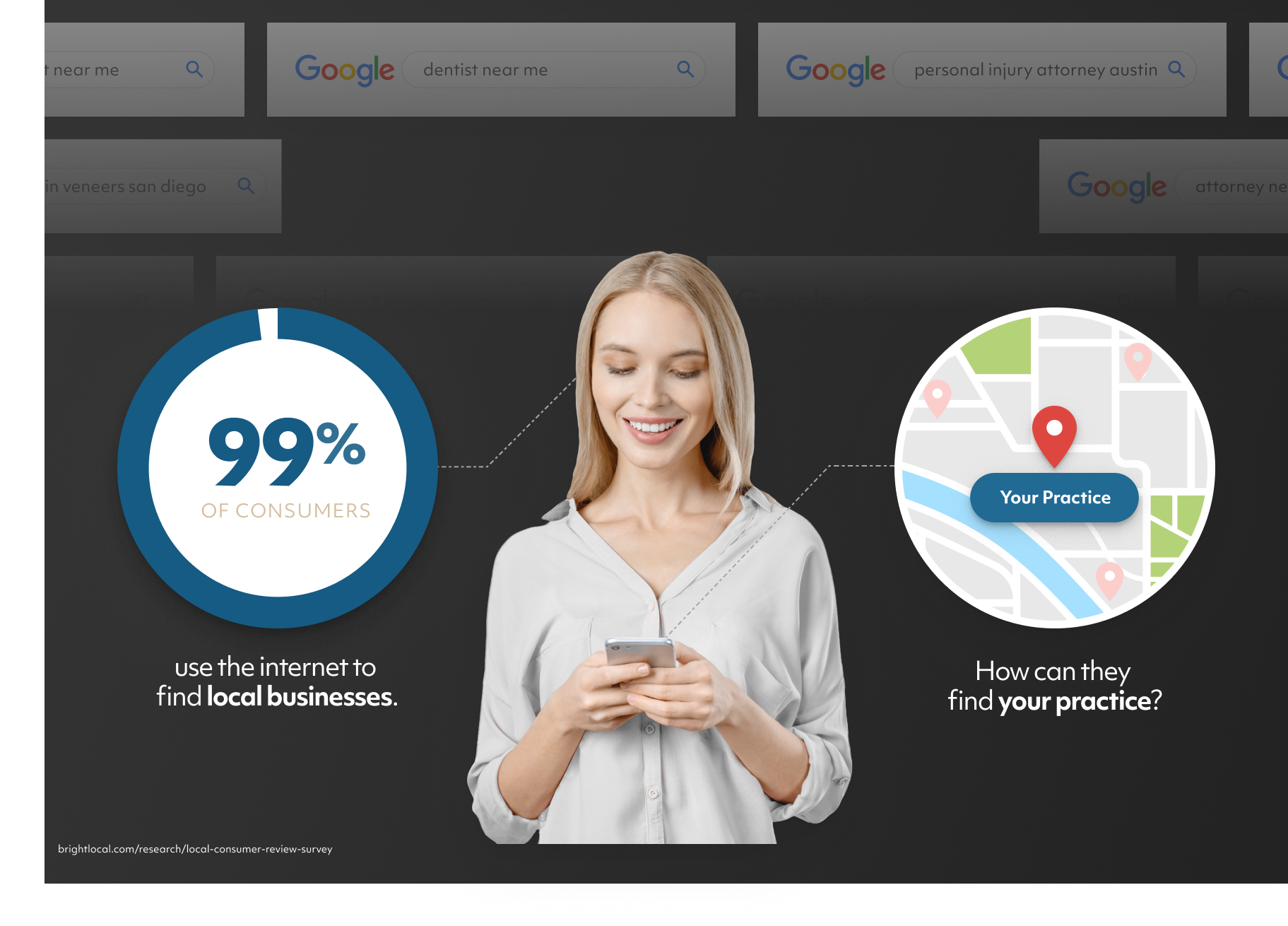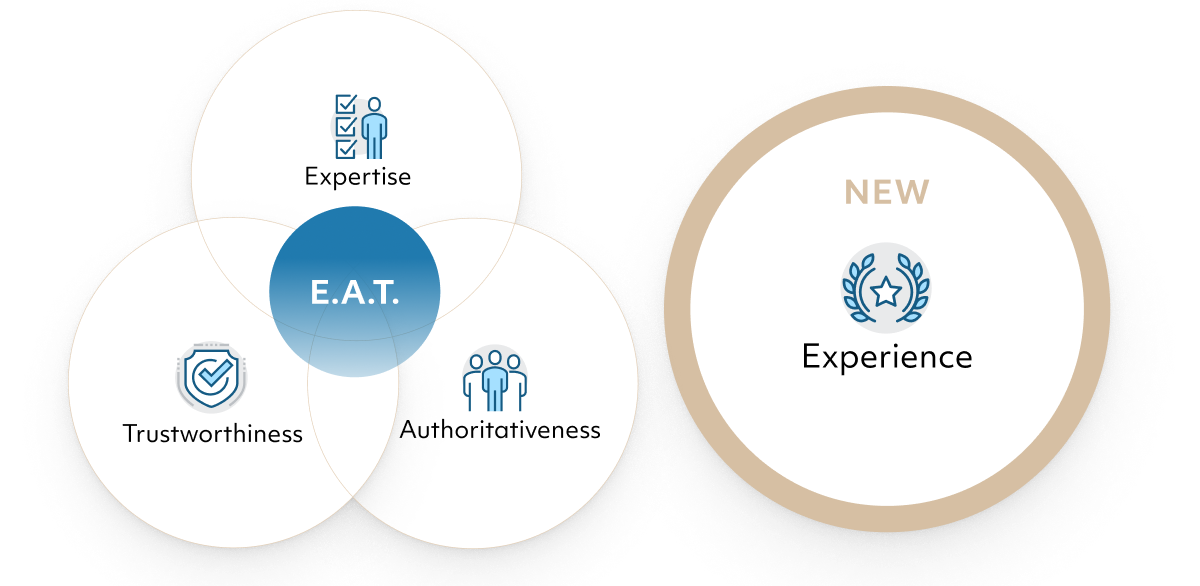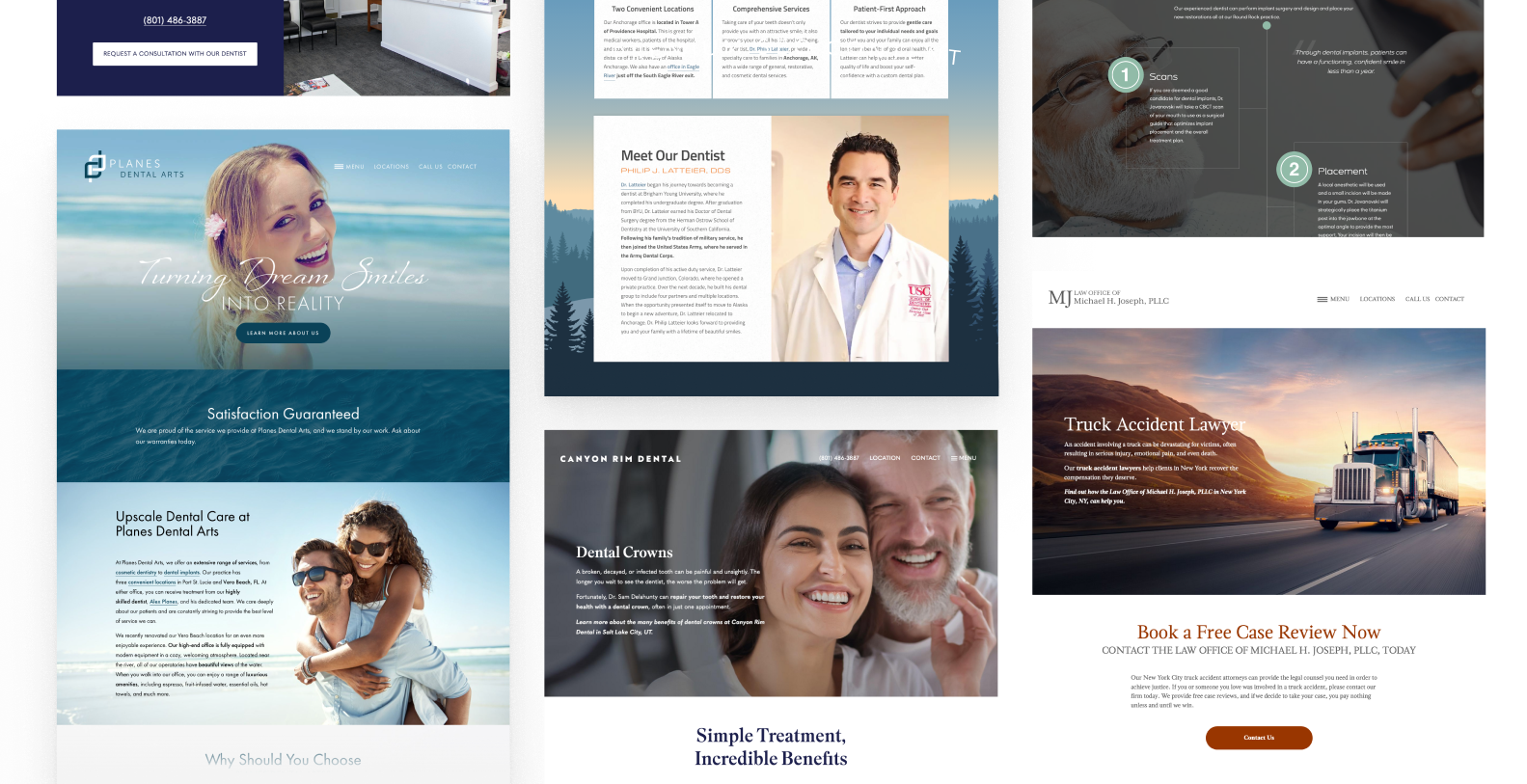What Do I Need to Run a Successful Dental Website?

The days of commissioning a cheap, static website for your dental practice are long gone. As far as internet users are concerned, a dentist's website is a direct reflection of their business. Even if their office is filled with the latest technology in dentistry, a slow and outdated website will make potential patients assume their entire dental practice is also outdated.
In order to keep your search rankings high and attract new dental patients, you’ll need to keep up with the ever-rising expectations of both Google and potential patients. At Einstein Dental, we've found that all successful dental websites have some similar factors:
- Content strategy and management
- Mobile-first approach
- Loading speed and performance
- Website design and media
- User experience and user interface
- Flexibility and expansion
By balancing all of these factors in a single website, dentists can significantly increase their brand's online rankings and ROI.
While each factor is an essential piece of a successful dental website, there are two items that will determine your approach to every other aspect of your site: content management and mobile friendliness. Let’s dive into those first.
Content Strategy and Management
One rule of search engine optimization (SEO) has remained constant over the years: content is king. Google constantly updates its algorithms with varying results, but the company’s intent has not changed: prioritize content that satisfies its user base in order to continue generating ad revenue.
Even though Google keeps the details of its algorithms a well-kept secret, the company has established the importance of having Helpful Content on your website. Google defines Helpful Content as “people-first content” that provides relevant and accurate information to users. By comparison, “search-engine first” practices such as keyword stuffing will negatively impact your rankings.

What Are the Guidelines for Dental Content?
Google established a strict set of guidelines for Your Money, Your Life (YMYL) content which covers “topics that could significantly impact the health, financial stability, or safety of people”. As you can guess, all forms of healthcare (including dentistry) fall under that category. Google judges YMYL content according to the experience, expertise, authoritativeness, and trustworthiness (EEAT) of a webpage and its authors.
- Experience - the first-hand experience of the content creator
- Expertise - the training or knowledge of the content creator
- Authoritativeness - the reliability of the creator or website as a source of information on the subject
- Trustworthiness - how accurate, honest, safe, and reliable the content or source is
Experience, expertise, and authoritativeness all contribute to a website’s overall levels of trustworthiness. Even with high levels of EEA, Google will rate content as “low quality” if there’s any reason to mistrust the source of information.
For example, the website of a well-known dentist should check the boxes on experience, expertise, and authoritativeness. But if that dentist's site uses misleading links to try and manipulate the user into purchasing a service, Google will rate it as low or even poor quality.
That's also why obtaining testimonials and reviews for your practice is so important. Testimonials help build trust in your brand for both Google and potential patients.
Does Content “Freshness” Matter for Dental Websites?
In order to keep up with the high standards set for dental content, dentists need to ensure that their website has accurate, up-to-date information. While the “freshness” of content (how recently the content was updated) is not a confirmed ranking factor, having outdated or inaccurate information on your dental site can negatively impact its EEAT rating. Featuring outdated information on your site can also hurt your credit in the field of dentistry.
Despite the benefits of refreshing your content, you should not go overboard on pushing out constant updates. Google will flag continuous updates as spam or other forms of suspicious behavior, so you’ll need to strike a balance in order to get the most ROI from your dental content.
“The days of commissioning a cheap, static website for your practice are long gone.”
When Should I Update My Content?
That will depend on your website and content strategy. Even with all of the constant changes in search algorithms, there’s no need to update a page as long as it maintains a high, steady rank in your targeted search results. If it’s not broken, don’t fix it. However, you need to understand that it will eventually break (though not all at once). Some pages may need to be touched up every few months while others may last two years before needing to be updated.
At Einstein Dental, we use an AI-powered system called the eIQ Recommendation Engine to automatically determine when a page needs to be updated.
What Should I Update or Change?
When updating content for your dental site, you should look at several major factors including:
- Accuracy of the content (especially facts and statistics)
- Schema and metadata
- Page loading speed
- User experience and navigation
- Media assets and other website design elements
If you make any significant changes to the content of the page, such as replacing old media or adding new information, you should always double-check the schema and metadata. There may be some situations where changing the metadata and schema aren’t necessary, but it’s best to be thorough since those items directly tell Google what the page is about.
For example, Google may not know you are an oral surgeon as well as a dentist if you don't have the right metadata and schema. So patients looking for an oral surgeon may never discover your practice because Google doesn't know your brand is a relevant search result to "oral surgeons near me".
The strict standards set for dental content sets the bar higher for your website, but that also means you can quickly surpass a lot of low-quality competition if you fill your site with quality EEAT content. But once the chaff has been sorted out, you’ll face even fiercer competition from other dentists. That’s when the other factors on this list really come into play and will help distinguish your brand in the highly competitive field of dentistry.

Mobile-First Approach
While desktop browsing is certainly alive, it’s no longer the standard for websites. As of Q1 2023, over 58% of all global web traffic was accessed from mobile devices. Google saw the rapid increase in mobile traffic years ago and announced a complete shift to mobile-first indexing back in 2020.
Mobile-first indexing essentially means that Google will add the mobile version of your site to its database of search results and determine several ranking factors based on your site’s mobile performance. Google may still index the desktop version, but the mobile version will always weigh more when search engines rank a site.
As a result, mobile friendliness should be one of the top priorities when building a website because it will determine every other ranking factor of your site. At Einstein, we build dental websites from the ground up for mobile devices because it has such a huge impact on online visibility and performance.
Loading Speed and Performance
The standards for page loading speed and performance are largely set by the advances in computer processors and internet speed. As these new advances become widely available, the baseline of acceptable loading times will constantly shift. Remember, new patients won’t stop to wait for your site to load when hundreds of other options are a click away, and Google will try to avoid promoting “slow” websites in order to avoid alienating its user base.
Unfortunately, the loading speed of a website is not always straightforward. Loading speed is actually an umbrella term that includes different methods of measuring page performance. According to Google’s list of Web Core Vitals, the three most effective forms of page speed are:
- First Contentful Paint - the time it takes for the largest chunk of content to become visible
- First Input Delay - the time it takes before the user can interact with the page
- Cumulative Layout Shift - the time it takes before the content’s position on the page stabilizes
While Google may look at other types of loading speeds, these three factors will have the largest impact on your web rankings. You can see how individual pages perform with Google Lighthouse and other useful tools.

Website Design and Media
First impressions have a huge influence on what patients think about you and your brand. According to Google, users can develop a first impression within 17 milliseconds of visiting a site based on what they see at the top of the page. And remember, with hundreds of other dentist websites a click away, search users have no reason to think twice about their initial impressions of your brand.
And like site performance, the standards for media are also constantly rising with tech developments like higher resolutions. Unfortunately, boosting your website design and media isn’t as easy as putting 8k photos onto every page. Higher resolutions mean longer load times, especially for users that own old or cheap devices.
Potential patients will also forget about your brand if your dental website design looks similar to other competitors, whether it's due to excessive stock photos or similar page layouts. The best way to distinguish your brand is by investing in professional-quality media and videos that are specific to your brand.
At Einstein, we’ve found that visually engaging images and headlines at the top of a page will do wonders for keeping potential patients interested in your practice. We also work with thousands of professional photographers and videographers that are experienced in the field of dentistry to improve our clients' dental website designs.
User Experience and User Interface
User experience and user interface (UX/UI) refer to the general layout, navigation, and emotional response that users experience on your website. A website with good UX/UI will be easy to navigate, easy to read, and direct users to the information that they’re looking for. Listing all of your services with links leading to a dedicated page for each treatment is a basic example.
Accessibility options also fall under this category, such as adding proper alt text for images and video transcripts. According to the ADA, over 97% of the top million homepages fail to deliver basic accessibility options, which can leave businesses vulnerable to website compliance lawsuits. That’s why we offer extensive ADA compliance options for our clients on top of our normal adherence to ADA guidelines.
Flexibility and Expansion
With all of the constant changes in the SEO industry and user expectations, a static website will not earn (or keep) the top spot in search results. That’s why a successful dental website needs to be built with flexibility and expansion in mind.
Later this month, Einstein Dental will be launching a new CMS called Lucid 3.0 that’s built with those ideals in mind. Lucid 3.0 is a dynamic system that can move and shift with the constant developments in SEO and technology.
Feel Like Your Dental Website Is Lacking? Evolve Your Site With Einstein Dental
A successful dental website requires a huge amount of maintenance in order to keep up with the rising standards of Google and Internet users. Despite that challenge, a well-made website can generate a huge amount of ROI and brand recognition. If you practice dentistry and feel like your current website is lacking in any of these factors, you could be losing out on a lot of new patient revenue.
Contact Einstein Dental to learn more about running a successful online brand and how you can attract new patients to your business.



